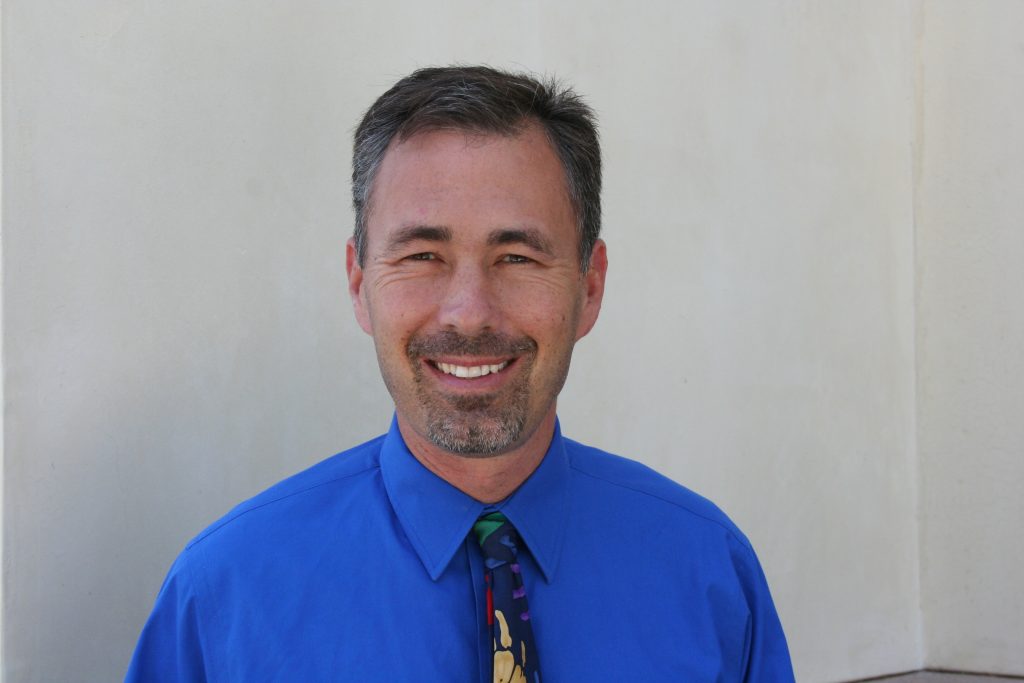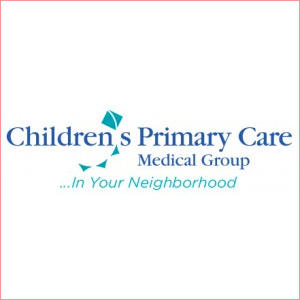Meet Dr. Daniel Robbins

A pediatrician at CPCMG Temecula Parkway for 17 years, and a committed youth athletic coach to more than 30 teams, it’s not a surprise that this doctor has strong connections with local families. Meet Dr. Daniel Robbins and learn more about his active family that loves tennis, hiking, travel and music.
At what CPCMG office do you work?
I work at the Temecula Parkway office.
How long have you worked there?
I have worked at the Temecula office for 17 years.
Where did you grow up? If you didn’t grow up in the San Diego area, what brought you to southern California?
I grew up in East Lansing, Michigan. My father is an archaeologist – think “Indiana Jones” – so I spent some time as a child in remote African villages. I went to high school, college, medical school, and did my pediatric residency in Michigan. I met my wife, Kristi, in high school and we married shortly after graduating from college. When we were finished with graduate school, we decided to move to Temecula so we could raise our family in the same town as Kristi’s sister. It worked out great. We have three kids and live next door to my nieces and nephews, so we have six kids running in and out of our house pretty much all the time.
Why did you decide to become a pediatrician? What attracted you to pediatrics? Did you consider other specialties?
Like most doctors, I chose medicine as a career because I wanted to make a difference helping others, and because I wanted to have a challenging career where my brain was always active. At first, I thought I would be a family practice physician. I had little experience in the area of pediatrics at that point in my training, but I knew that pediatrics was such a unique field filled with very specific and complex information specific to children. I wanted to make sure that if I ever had to take care of a sick child, that I was completely and utterly prepared, so I took extra rotations in pediatrics. Those rotations made me feel comfortable with the pediatric subject matter and skillsets, and I also learned some things about myself: I learned that I love interacting with kids (and teens and babies). I found out that I can really put kids at ease when they and their parents are stressed. I also found out that I love teaching: whether it is to other physicians, parents, or to kids themselves. So I became a pediatrician because that was where my heart was.
What do you enjoy most about working with children, parents and families?
I love the connections we make with families. Temecula is still a small enough place that I can run into a family at a local store, and then think to myself that I know all of the kid’s names, that I remember coaching one of them in soccer and that I remember what position he played and why, that I remember helping the middle child through a chronic illness, that I remember the third child from his stay in the neonatal intensive care unit and all of the details of that hospitalization, and that the family is happy and healthy now. I love this about my job. Our team at CPCMG is dedicated to treating each patient like they are a member of our family, and it is amazing to work with a team of compassionate and hard working people.
Tell us about your family. Do you have children? What do you like to do as a family?
My wife Kristi is a history professor. She also was elected to the Temecula Valley Unified School District Governing Board in 2008. My oldest son Josh is in college. My daughter Katie and my nephews Ben and John are in high school, and my son Eric and niece Jane are in middle school. We have a busy, noisy, messy and fun house. We all play tennis competitively and enjoy other sports; we enjoy hiking, travel, and music.
What is some important life advice (beyond what you learned in medical school) that you can give to parents for their children?
Every child is unique. Each of our children had unique gifts and talents, and each had unique challenges and personality traits. It is important to remember this when parenting. Many reference books and advice givers love to offer one solution for every problem regardless of personality or age, and this type of advice often fails because kids are different and have different needs. It is also important to be involved with your children and with their school and activities. The more time you spend with your children, their school, and their friends the better. Every day, ask them “What did you do at recess today? What did you do at lunch? What did you read at school today?” Specific questions help keep you connected and get you more information than the standard question and response, “How was your day? – Good.”
How do you maintain a healthy lifestyle? Any tips to share?
It is important to exercise daily – the kind of exercise that makes you breathe fast and sweat, and also the kind that builds muscle. Eating healthy food, avoid smoking and minimizing consumption of red meat and fast food are important. Exercising and avoiding fast food can be difficult if you are an active involved parent because it is hard to prioritize the time. I find that if you sign up for activities it compels you to show up and exercise. It is one reason I coach sports. I also find it helpful to require yourself to do minimal exercise daily, no matter what, like fifty push-up and fifty leg-lifts.
What are your favorite pastimes/hobbies? What else do you like to do in your spare time?
I coach my kids’ youth sports. I have coached over 30 teams since moving to Temecula – soccer, baseball, and tennis. It is a fun way to connect with kids, be active and spend time with my son. Our family has an orange and avocado ranch which we enjoy visiting, and we are planning on planting grapes on another piece of property soon. My family and I also love traveling.
Your name has D.O., F.A.A.P. after it. What does that mean?
D.O. means I am a Doctor of Osteopathic Medicine. There are two types of doctors in every specialty, M.D.’s and D.O.’s. The degrees are equivalent. I attended medical school at Michigan State University, where you could receive a M.D. degree (allopathic), or a D.O. degree (osteopathic). The D.O. program included the M.D. classes and had an additional emphasis on treating the patient as a whole, taking into account more than just the specific complaint. In addition to standard medical school classes, D.O. physicians also learn skills in musculoskeletal manipulation (physical therapy techniques). After graduating from medical school I did a M.D. (allopathic) pediatric residency, so I am a D.O. who then trained as an M.D. pediatrician, and passed the M.D. allopathic specialty boards to become a Fellow in the American Academy of Pediatrics (F.A.A.P.). I am also a Fellow in the American College of Osteopathic Pediatricians (F.A.C.O.P).

